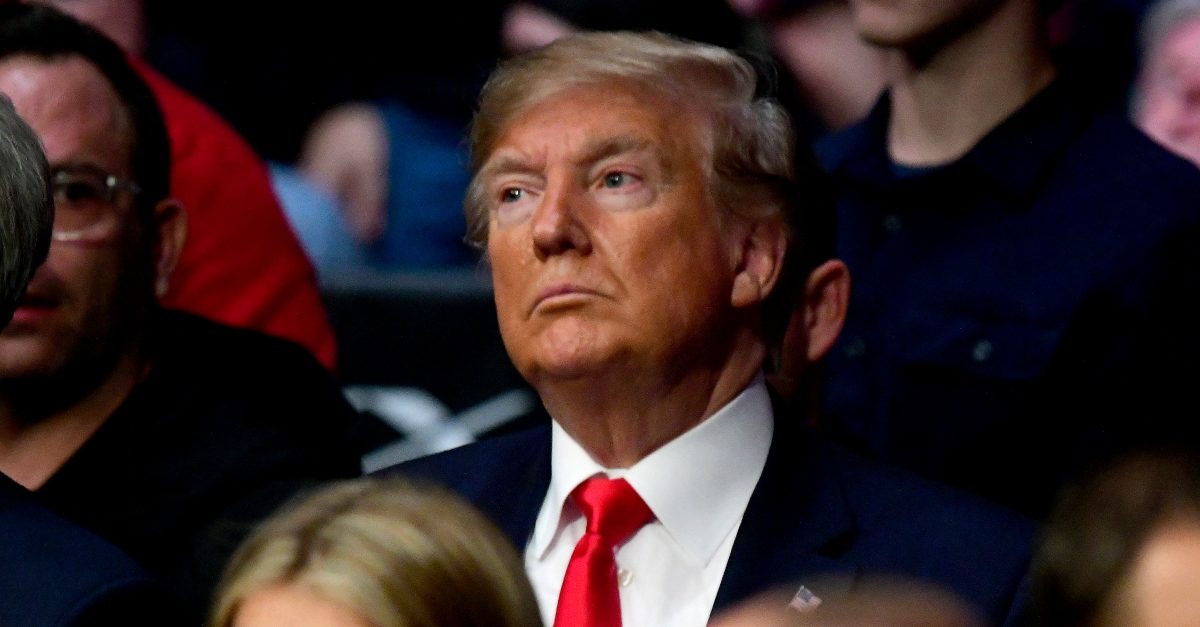
Three days removed from convening a panel of constitutional scholars–and two days ahead of its next hearing in the impeachment inquiry into President Donald Trump–the House Judiciary Committee on Saturday released its report on the “Constitutional Grounds for Presidential Impeachment.”
Here’s what the report said.
The Report is “Historic” in Nature.
The 55-page report, written by the panel’s Democratic staffers, largely aims to place the president’s conduct and alleged abuse of power in historical context, drawing heavily from the Founders in reaffirming House Democrats’ position that Trump committed impeachable offenses.
“Impeachment is the Constitution’s final answer to a President who mistakes himself for a monarch. Aware that power corrupts, our Framers built other guardrails against that error,” the report said in its introduction. “As George Mason warned at the Constitutional Convention, held in Philadelphia in 1787, ‘if we do not provide against corruption, our government will soon be at an end.’ Mason evoked a well-known historical truth: when corrupt motives take root, they drive an endless thirst for power and contempt for checks and balances. It is then only the smallest of steps toward acts of oppression and assaults on free and fair elections.”
It Refutes the Idea That Impeachment Would “Overturn” the 2016 Election.
The report addresses head-on the GOP talking point that impeaching President Trump would, in effect, overturn the will of the American people. Democrats argue that an impeachment mechanism is an essential component of any properly functioning democracy, which is why it’s in the Constitution.
“Impeachment is part of democratic constitutional governance, not an exception to it,” the report stated. “This process does not ‘nullify’ the last election. No President is entitled to persist in office after committing ‘high Crimes and Misdemeanors,’ and no voter is entitled to expect that their preferred candidate will do so.
The House Compared Trump’s Conduct to Richard Nixon’s.
The report invokes Nixon’s name more than 50 times, noting that his behavior in office “has come to exemplify impeachable abuse of power.”
According to the report, the Trump administration’s stonewalling of congressional investigators and refusal to allow current and former White House officials to comply with subpoenas based on claims of executive privilege are even more severe instances of obstruction than those that appeared in Nixon’s Articles of Impeachment:
History thus confirms that defiance by his own aides do not afford the President a defense to impeachment. The Nation is not required to cross its fingers and hope White House staff will persist in ignoring or sidelining a President who orders them to execute “high Crimes and Misdemeanors.”
It Rebuts Claims That Trump’s “Due Process” Rights Have Been Violated.
The report rebuts the GOP claim that the impeachment process violates President Trump’s Sixth Amendment rights; the House inquiry functions like a grand jury and is not a criminal proceeding.
“When the House wields its constitutional impeachment power, it functions like a grand jury or prosecutor: its job is to figure out what the President did and why he did it, and then to decide whether the President should be charged with impeachable offenses,” the report read. “If the House approves any articles of impeachment, the President is entitled to present a full defense at trial in the Senate. It is thus in the Senate, and not in the House, where the President might properly raise certain protections associated with trials.”
The House Judiciary Committee invited Trump and his lawyers to participate, but the White House has declined do so.
You can read the full report below.
Judiciary Panel Report FINAL v.3 by Law&Crime on Scribd
[image via Steven Ryan_Getty Images]
Have a tip we should know? [email protected]